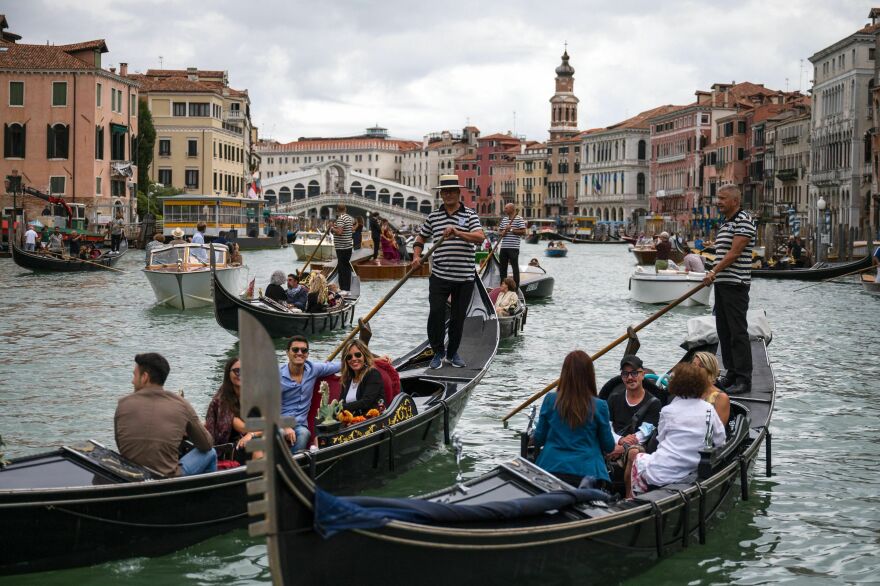Venice, Italy, will limit the size of tour groups and take other measures beginning this summer to soften the impact of tourism on the local community.
The Italian travel hub known for its picturesque canals and ornate architecture has struggled to manage the millions of tourists that flock to the city each year, many just for the day.
Venice tourism councilor Simone Venturini said the new measures were "part of a broader framework of interventions aimed at improving and better managing tourism in Venice, thus guaranteeing a greater balance between the needs of those who live in the city, either as residents or as workers, and those who come to visit the city."
The new municipal resolution will cap tour groups at 25 people — or roughly half of the passengers on a standard tour bus — and ban loudspeakers that "may cause confusion and disturbance," the city said in a statement.
Set to take effect on June 1, the new rules will apply to both the historic center of Venice as well as the islands of Murano, Burano and Torcello.
Venice security councilor Elisabetta Pesce said it was an "important measure aimed at improving the management of groups organized in the historic center and on the nearby islands of Murano, Burano and Torcello, promoting sustainable tourism and guaranteeing the protection and safety of the city."
UNESCO, which has named Venice a World Heritage site, says "tourism pressure" is one of the factors transforming the city and its lagoon.
In recent years, Venice has taken other steps to keep a handle on tourism, including announcing a plan to require day-trippers to make a reservation and pay a fee and outlawing large cruise ships.
The low-lying city, which relies in part on its canals as a tourist draw, also continues to struggle with another related issue: climate change.
Venice has sunk more than 5.9 inches over the past century, and in 2019 the city's mayor Luigi Brugnaro attributed a flood that inundated more than 85% of Venice to climate change.
Copyright 2024 NPR. To see more, visit https://www.npr.org.



